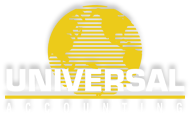 Stay In Touch
Stay In Touch
To keep existing clients, they need to know that you are there for them. Keeping the lines of communication open with them is absolutely essential to keeping clients happy.Objectives of communication with clients which email can facilitate include:
- Two-way communication of information needed to accomplish the tasks your clients are paying you for.
- Show your clients you are always there for them when they need you. Demonstrate that not only do your services cost less than if a client had hired their own bookkeeper, but that you are just as available.
- Show your clients that you are on their mind and that their success is important to you.
Your goals in communication with clients facilitate one of two goals. You want to keep the clients you have and find additional paying clients.
Advantages to Email Over Other Ways to Communicate
Email Is Time-EfficientPhone calls and personal meetings rob you of time. Phone calls often result in spending large amounts of time socializing with clients. While you need to maintain a good rapport with your clients, they will appreciate you staying focused on the things they are paying you for. Their time is precious too.Personal meetings are probably the worst wasters of time, since you not only have the time spent in the meeting itself, but the commute to and from a client’s place of business.You can leverage from one email to another. You may find that you get the same questions by many of your clients. Look in your email client’s Sent box and see what you said last time. This will save you time and it ensures that you give consistent, well-researched answers, while keeping research time to a minimum.You Get Time to ThinkWhen you are face-to-face with a client or on a phone conversation with them, you often do not have the opportunity to take a few minutes to mull over the best answer. You won’t get time to research your answer if you need more information. While you can always tell a client that you will find out, if you use this tactic too often, you run the risk of your clients feeling like you don’t know what you are doing.With email, you can take your time composing just the right response. If you are in doubt about how it may be received, you can always bounce the email off a friend to see how you can better phrase things.Email Is InexpensiveWhile postal mail costs money for envelopes and postage, if you already have Internet access (and if you don’t, you should), it costs you nothing besides your time.
Rules For Effective Emails
Communicating with clients through e-mail need not be a challenge. The best way to compose effective e-mail messages is to set up a basic format to follow.Start by handling each of these areas:The Subject LineWrite clear, specific, and concise subject lines. For example, rather than writing, “We have something we want to tell you about your profit & loss,” which is vague and wordy, write, “Your financials are done!”Main Body of the MessageThe first paragraph should restate the client’s question (if you are writing a reply to a client’s e-mail message).The ClosingIn the closing paragraph, thank the client again, and offer further assistance.Be Polite Because there’s no face-to-face contact in an e-mail communication, people tend to be more casual, outspoken, or even rude than they would be in person, or even on the phone. But good netiquette requires the utmost courtesy at all times.Because a large percentage of communication is non-verbal, it is more easy to be misunderstood when you are not speaking directly to a client. Things like voice inflections and body language are often cues as to a client’s reaction to your statements. With an email, you never know the mood of the client when they read your correspondence, so you must be extra careful in your wordings and how they could be taken.FormattingAvoid using capital letters (except to punctuate names or the beginnings of sentences). In e-mail, capitalizing all the letters in a word is tantamount to shouting.Accounting/Tax Terminology Minimize accounting jargon. Avoid using financial acronyms and buzzwords unless you are e-mailing a true expert or long time client. Many clients will not understand this terminology, and may end up misunderstanding the message as a result.Solve Issues the First TimeResolve issues on the first contact. First-time resolution is just as important with e-mail as it is with traditional telephone interactions. It saves everyone time if you completely fulfill clients’ requests or resolve their problems in the first response.AttachmentsUse attachments only when necessary. E-mail attachments require readers to download the files, which can be annoying (or impossible if a client doesn’t have the appropriate software to open it with). Certain types of attachments may be blocked either by the email client (Outlook, Outlook Express, Thunderbird, etc.) or by the recipient’s internet service provider. Some kinds of files may contain viruses or other ill effects, so they may simply not arrive at their destination.As silly as it sounds, it is very common to refer to an attachment in the body of an email, and then forget to attach the file you refer to. If you are going to attach a file to an email, it is a good idea to attach the file before composing the letter. Once you begin writing the email message, you can easily get involved in the message and simply forget to attach the file. This, of course, looks very unprofessional and is easily avoidable.Proofread! It’s critical to proofread e-mail messages before hitting the “send” button. Also, read sentences for clarity and accuracy, and look for any wording that could be misinterpreted. If your email client doesn’t have a spell checker, you probably want to consider using one that does. Few things look more unprofessional than misspelled words or other typos. If your email client does not support spell checking, consider composing your emails in your word processor and spell-checking with it. Then just copy and paste the text of the email into your email client before sending.Know When Not To Use Email When clients write with complex questions or several questions, it may save time if you reply by phone.If a client expresses a preference to use another method of communication, respect their wishes, even if it takes more time or effort. Keeping existing clients pleased with your work usually takes less time and effort than finding new clients if they become dissatisfied.
Email: Just One Aspect of Running Your Accounting Service
Most accounting courses focus on teaching you the basics: debits and credits, general ledger, and so on. One thing they will never teach you is how to run an accounting service, much less how to make it profitable. That’s what we do, and why Universal Accounting training is so different. Sure, you’ll get the basics, but you will also learn how to find clients and how to sell your services for the highest possible hourly rate. If you want an accounting job making $10 per hour, go to a university for training. If you want to learn how to make $30 to $60 per hour, set your own flexible hours, and be your own boss, you owe it to yourself to click the link below and learn more. Hundreds of our graduates started down the road to personal and financial freedom with that same little mouse click.Learn Why an Accounting Service Will Best Achieve Your Financial Goals
Share this post: on Twitter on Facebook on Google+

 Stay In Touch
Stay In Touch


